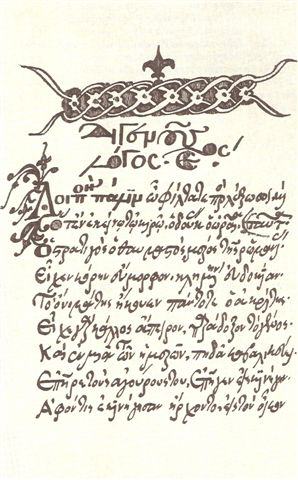 Although you may have read with indifference my past post on the book Anthologia Graeca Carminum Christianorum, perhaps this will capture your fancy. Just today I was paging through the Google Books site when I discovered a classic favorite of mine, Digenis Acritas, which is an anonymous Byzantine epic written in Greek. I have read an English translation of it before, but the only full version I could find on Google Books was a side by side Greek poetry and French prose version.
Although you may have read with indifference my past post on the book Anthologia Graeca Carminum Christianorum, perhaps this will capture your fancy. Just today I was paging through the Google Books site when I discovered a classic favorite of mine, Digenis Acritas, which is an anonymous Byzantine epic written in Greek. I have read an English translation of it before, but the only full version I could find on Google Books was a side by side Greek poetry and French prose version.
If you know French, that’s great. If you know Greek, that’s even better. For me, I can read Greek a lot better than French, so I think I’ll just read the original this time. If you’d like to give it a shot as well, feel free to download this PDF of the book. All I did was take Google Books’ file and add PDF bookmarks for easier navigation, so here it is for free, only 13.7 MB: Les Exploits de Digénis Akritas
This version of the poem is from the Trabzon manuscript, which is one of the lesser-known manuscripts, though not the oldest. For a free book, I am quite impressed!